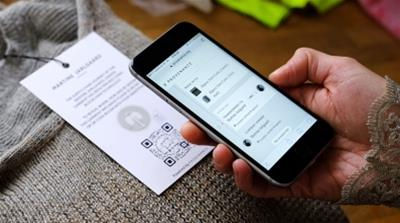Blockchain for the Supply Chain
- Aiméi Sara

- Aug 30, 2019
- 2 min read
In 2013, a large garment factory located in Bangladesh collapsed, killing over a thousand people. The tragic event triggered a fresh emphasis on fashion sustainability and spotlighted a need for increased corporate social responsibility. The difficulty many companies face with increased responsibilities such as this, is the subsequent increase in production and distribution costs. Most of these costs are thrust onto the customer who is not likely to spend more money on a good that is also available in a cheaper alternative. In order to remain competitive, sustainable businesses need to find ways around this challenge.
Some sustainable companies manage these costs by removing middlemen and going directly to the raw material producers. One such company is Kotn, a fashion label founded four years ago by Rami Helali. Kotn's supply chain begins in Egypt with small-holder farms where farmers are given guaranteed prices for their cotton as well as subsidies for agricultural consulting and fertilizer costs. This offer increases their revenue while bringing down Kotn's raw material costs. Helali also vertically integrated the production of Kotn's clothes to ensure he could track "every single person that touches the garment."
To justify the higher prices of goods, sustainable brands often rely on digital platforms to communicate the sustainability of their products. Some have even begun to use blockchain platforms such as Provenance to increase transparency of their supply chain. Martine Jarlgaard, a sustainable fashion brand, uses Provenance to track the raw alpaca fleece they use in their garments. With the use of a digital token, Provenance tracks the alpaca fleece through a history log that includes location data, content, and timestamps. Shoppers can then access that information. This type of digital technology is especially advantageous to smaller businesses because they can manage their supply chain and pivot quickly when needed. This gives them a competitive edge against larger businesses, which typically have more barriers to cross in order to make large-scale changes.
To learn more, read the Aljazeera article here.




Comments